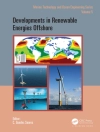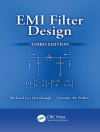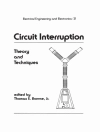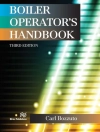Whilst financial rights have appeared as a successful ingredient in North-American power markets, they have their shortcomings both theoretically and in practice. Financial Transmission Rights: Analysis, Experiences and Prospects present a systematic and comprehensive overview of financial transmission rights (FTRS).
Following a general introduction to FTRs, including chapters to explain transmission pricing and the general properties of FTRS, experts in the field provide discussions on wide scope of topics. These include:
Varying perspectives on FTRS: from electrical engineers to economists,
Different mathematical formulations of FTRS
Financial Hedging using FTRS, and
Alternative solutions to FTRs
The detail, expertise and range of content makes Financial Transmission Rights: Analysis, Experiences and Prospect an essential resource for electricity market specialists both at academic and professional levels.
“This is THE BOOK we were all expecting to address all key ‘Financial Transmission Rights’ issues. It is comprehensive and reader friendly. You can pick at will in its menu: more or less theory, a bit of maths or none, empirical review of real cases or numerical simulations of many feasible options. Big names rally there to delight you like: Hogan , Oren, Perez-Arriaga, Smeers, Hobbs and… Rosellón. More than a must read: a light house, a map and a survival kit.”
Jean – Michel Glachant, Director Florence School, Holder Loyola de Palacio Chair, Chief-editor Economics of Energy & Environmental Policy.
‘In the last two decades, economists have developed a better understanding of the impact of financial rights on risk management, market power and network expansion in electricity markets, while power systems have experimented with such rights. Striking a good balance between academics and practitioners, always at the frontier of the field, written bythe best experts, this volume is essential reading for all those- power systems’ managers and users, regulators, students and researchers- who want to understand the new electricity environment and predict its evolution.’
Jean Tirole, Toulouse School of Economics and Institute for Industrial Economics (IDEI)
Further comments inside.
İçerik tablosu
1.Financial Transmission Rights: Point-to Point Formulations.- 2.Transmission Pricing.- 3.Point to Point and Flow-based Financial Transmission Rights: Revenue Adequacy and Performance Incentives.- 4.A Joint Energy and Transmission Rights Auction on a Network with Nonlinear Constraints: Design, Pricing and Revenue Adequacy.- 5.Generator Ownership of Financial Transmission Rights and Market Power.- 6.A Merchant Mechanism for Electricity Transmission Expansion.- 7.Mechanisms for the Optimal Expansion of Electricity Transmission Networks.- 8.Long Term Financial Transportation Rights: An Experiment.- 9.FTR Properties: Advantages and Disadvantages.- 10.FTRs and Revenue Adequacy.- 11.Trading FTRs: Real Life Challenges.- 12.Participation and Efficiency in the New York Financial Transmission Rights Markets.- 13.Experience with FTRs and Related Concepts in Australia and New Zealand.- 14.Transmission Rights in the European Market Coupling System: An Analysis of Current Proposals.- 15.Incentives for Transmission Investment in the PJM Electricity Market: FTRs or Regulation (or both?).
Yazar hakkında
Dr. Tarjei Kristiansen is Head of Power Market Analysis at SN Power Brazil. Prior to joining SN Power he was a Vice President with JP Morgan in London and responsible for German and Nordic power market analysis. Dr. Kristiansen has also worked for the trading company RBS Sempra Commodities, the utility Statkraft and KEMA Consulting in its markets and regulation team. Dr. Kristiansen holds an MSc in Physics from the University of Oslo and a Ph D in Electrical Power Engineering from the Norwegian University of Science and Technology. He completed the Fellows Program at the Mossavar-Rahmani Center for Business and Government at the John F. Kennedy School of Government, Harvard University. His Ph D focused on risk management associated with transmission congestion including financial transmission rights. He frequently publishes papers on European electricity markets, modeling and financial transmission rights in the US. When he is not analysing and modelling electricity markets, he spends time jogging or reading finance. He can be reached at [email protected].
Juan Rosellón is tenured Professor at the Department of Economics of the Centro de Investigación y Docencia Económicas (CIDE) in Mexico City, and Senior Researcher at the German Institute for Economic Research (DIW-Berlin). He has been Visiting Professor at the Technische Universität Berlin (2010-2011), the Technische Universität Dresden (2007-2010), and the Kennedy School of Government of Harvard University (2002-2005). Professor Rosellón has published extensively on incentive mechanisms to regulate restructured electricity and natural gas markets, including price-cap methodologies to promoteinfrastructure investment and addressing strategic behavior by participants with market power. He is member of the Editorial Board of Economics of Energy & Environmental Policy, and is the Editor of Economía Mexicana, Nueva Época. Professor Rosellón has been awarded with a Marie-Curie Fellowship from the European Union (2012), the 4th Reimut Jochimsen Prize by the Deutsche Bundesbank (2009), a Georg Forster Fellowship by the Humboldt Foundation (2008), and a Repsol-YPF-Harvard-Kennedy-School Fellowship (2003). He holds a Ph.D in Economics from Rice University (1993). Email address: [email protected]; [email protected]












